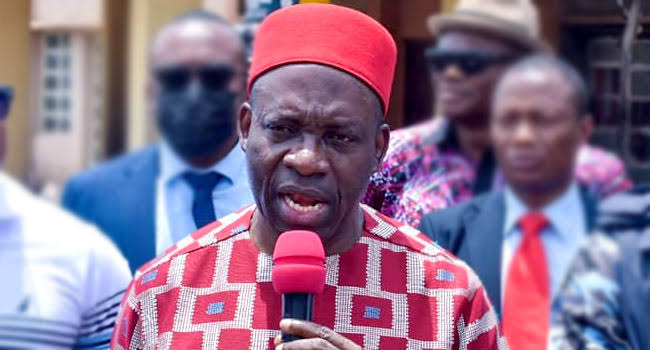- Safiu Kehinde
He warned that such a move could undermine efforts to curb impunity in the electoral process.
While commending INEC’s progress during a virtual message at the Athena Centre’s Review of INEC’s Innovation in Electoral Technology (2015–2025), Soludo faulted the proposed amendment to Section 64 of the Electoral Act.
The section currently empowers INEC to review results declared under duress or in breach of its guidelines.
According to Soludo, INEC now seeks to limit this power solely to cases where results are declared under duress.
“How problematic is that, given that Nigerians have demanded such powers to address impunity by politicians undermining the process?” he asked.
He challenged INEC’s rationale for proposing limits on its review powers, especially when collation officers often announce results contrary to set guidelines.
“When results are announced in breach of the law, it seems perverse to protect officials who violate electoral rules,” The former Central Bank of Nigeria’s (CBN) Governor said.
Soludo acknowledged concerns that expanding INEC’s review powers might overburden the commission with matters better suited for the courts.
In spite of this, he maintained that the review process must remain strong enough to hold officials accountable.
He called for laws ensuring that any INEC officer who endorses a flawed collation should face prosecution and imprisonment.
“Until one, two, or three are jailed, many will still think they can subvert the process without consequence,” he said.
Soludo decried a system where erring officials are recycled as “experts” in manipulating outcomes across different states.
He said this culture of impunity remains one of Nigeria’s biggest electoral problems.
The governor linked the issue to the need for full transparency, stressing that elections must be seen to be fair by all.
He shared his vision of an electoral system where politicians do not need to know INEC or security officials to win elections.
“In such a system, results are declared because the people want them to win,” he said.
Soludo urged political parties to remain vigilant, citing a by-election where alert party agents stopped pre-filled ballot papers from being used.
He also called for a thorough evaluation of security agents’ roles in elections, reiterating his ideal of independence from influence.
While cautioning against portraying the process as entirely flawed or perfect, Soludo said Nigeria has made significant progress.
He cited Prof. Attahiru Jega’s tenure, when the government that appointed him lost and conceded defeat.
“We’ve seen progress and setbacks,” he said, urging stakeholders to focus on steady improvement.
“It’s a work in progress. We can advance much faster, but we must remember where we started and where we’re heading,” he added.


